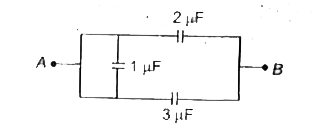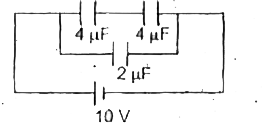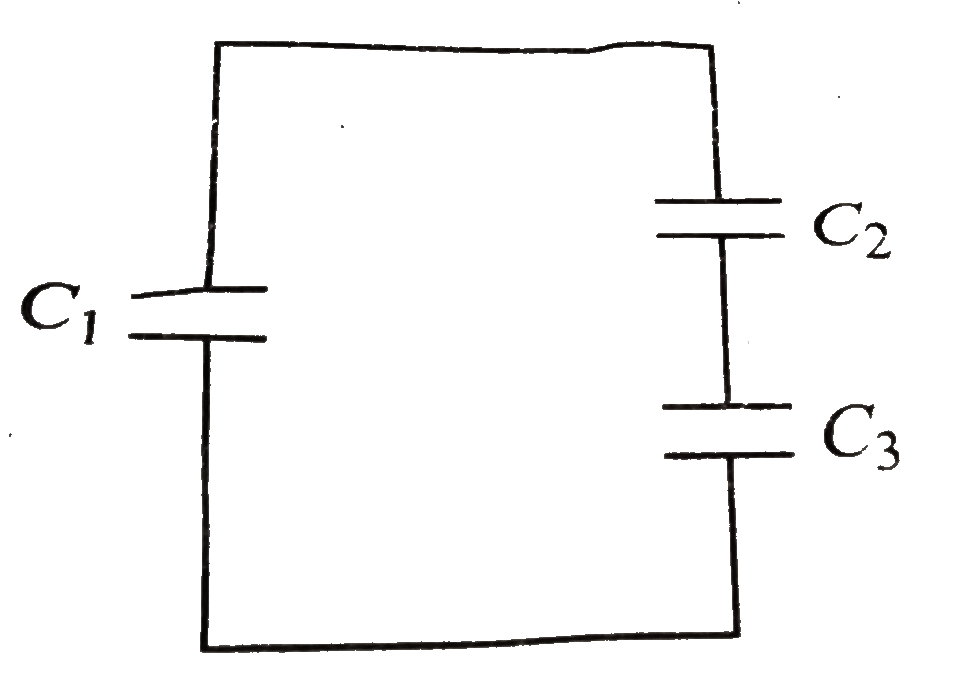Would the charge change if the plates were pulled without battery ?
To solve the question of whether the charge would change if the plates of a capacitor are pulled apart without the battery connected, we can follow these steps:
1. Understanding the Capacitor Setup:
- Initially, we have a capacitor connected to a battery. The battery charges the plates of the capacitor, creating a positive charge (+Q) on one plate and a negative charge (-Q) on the other plate.
2. Disconnecting the Battery:
- When the battery is disconnected, the charges on the plates remain fixed. The positive plate retains its charge of +Q, and the negative plate retains its charge of -Q.
3. Pulling the Plates Apart:
- If the plates of the capacitor are pulled apart while the battery is disconnected, we need to consider what happens to the charge. The key point here is that the charge on the plates is not influenced by the distance between them when the battery is not connected.
4. Charge Conservation:
- Since the battery is no longer connected, there is no additional charge being supplied or removed from the capacitor. Therefore, the total charge on the capacitor remains constant.
5. Conclusion:
- The charge on the plates will not change when the plates are pulled apart without the battery connected. The charge remains at +Q and -Q, respectively.
Final Answer:
No, the charge will not change if the plates are pulled apart without the battery.
- Initially, we have a capacitor connected to a battery. The battery charges the plates of the capacitor, creating a positive charge (+Q) on one plate and a negative charge (-Q) on the other plate.
- When the battery is disconnected, the charges on the plates remain fixed. The positive plate retains its charge of +Q, and the negative plate retains its charge of -Q.
- If the plates of the capacitor are pulled apart while the battery is disconnected, we need to consider what happens to the charge. The key point here is that the charge on the plates is not influenced by the distance between them when the battery is not connected.
- Since the battery is no longer connected, there is no additional charge being supplied or removed from the capacitor. Therefore, the total charge on the capacitor remains constant.
- The charge on the plates will not change when the plates are pulled apart without the battery connected. The charge remains at +Q and -Q, respectively.
No, the charge will not change if the plates are pulled apart without the battery.
Similar Questions
A parallel plate capacitor is charged. If the plates are pulled apart
View SolutionIn the given circuit the charge on the plates of 1 μF capacitor, when 100 V battery is connected to the terminals A and B will be

View SolutionA parallel-plate capacitor has plates of area A and separation d and is charged to a potential difference V. The charging battery is then disconnected, and the plates are pulled apart until their separation is 2d. Derive expression in terms of A,d and V for
(a) the new potential difference
(b) the initial and final stored energies, Ui and Uf and
(c) the work required to increase the separation of plates from d to 2d.
View SolutionIf initial charge on all the capacitors were zero , work done by the battery in the circuit shown is

View SolutionCapacitor C1 is connected to a battery and charged till the magnitude of the charge on each plate is q0. Then, the battery is disconnected and C1 is connected to two other uncharged capacitors C2andC3 as shown in figure. Final charges on the capacitors (q1,q2andq3) are related by .

View SolutionA pararllel plate capacitor has plates of area A and separation d and is charged to potential diference V. The charging battery is then disconnected and the plates are pulle apart until their separation is 2d. What is the work required to separate the plates?
View SolutionKeeping the voltage of the charging source constant, what would be the percentage change in the energy stored in a parallel plate capcitor, if the separation between in plates were to be decreased by 10% ?
View SolutionA parallel -plate capacitor is connected to a battery that maintains a constant potential difference V between the plates. If the plates are pulled away from each other, increasing their separation, does the magnitude of the charge on the plates (a) increase, (b) decrease, or (c ) remain the same ?
View SolutionA 10.0μF parallel-plate capacitor with circular plates is connected to a 12.0V battery.
(a) What is the charge on each plate?
(b) How much charge would be on the plates if their separation were doubled while the capacitor remained connected to the battery?
(c) How much charge would be on the plates if the capacitor were connected to the 12.0V batter Y after the radius of each plate was doubled without changing their separation?
View SolutionA parallel plate capacitor is connected to a battery. The plates are pulled apart with uniform speed. If x is the separation between the plates, then the rate of change of electrostatic energy of the capacitor is proportional to
View Solution
